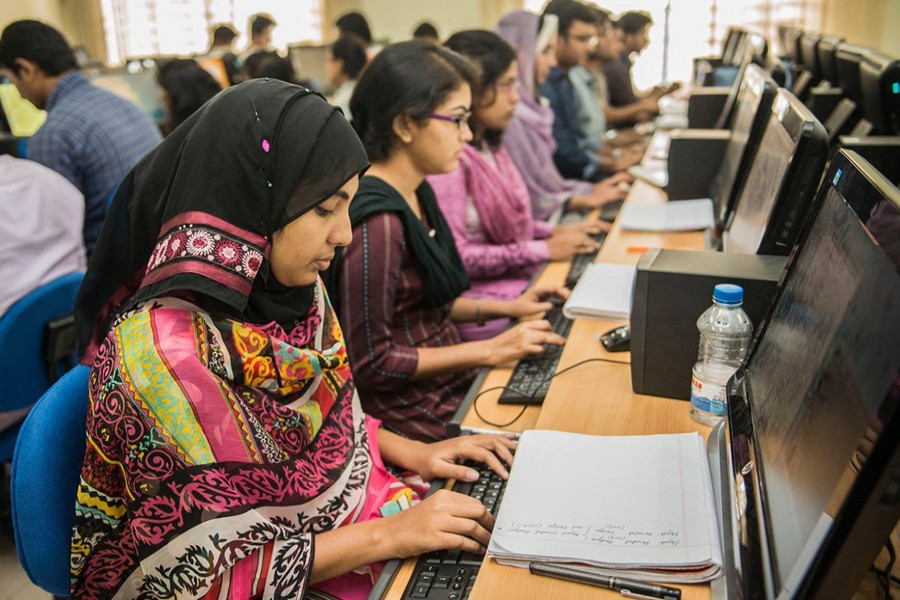
Published :
Updated :

A Bangla contemporary has recently run a report on the perennial gap between male and female agriculture labourers in Bangladesh. The report shows a female labourer in the northern region of the country is paid only Tk 250-300 a day in wage, which is simply half of the wage her male counterpart receives. Agriculture is not the only sector plagued by wage discrimination, formal sectors are equally affected by the malaise. Despite significant progress in education, workforce participation, and policy frameworks in the country over the past decades, the wage gap persists as a barrier to gender equality.
According to official data, women now constitute about 36 per cent of the country's workforce, with significant participation in the readymade garments sector, which accounts for over 80 per cent of the country's exports. Despite these achievements, women here earn significantly less than their male counterparts across various sectors thanks to the wage discrimination.
According to a report by the Bangladesh Bureau of Statistics (BBS), the average monthly income of women workers is approximately 21 per cent lower than that of men. This gap, which is even greater in rural areas and informal sectors, highlights systemic issues that undervalue women's contributions to the economy.
There is no denying that the shouldering of the primary responsibility by women of raising children and doing housework side by side with their professional responsibility affects their concentration on professional duties, but our society is not yet ready to lessen the burden on them through males' sharing equal responsibility or the creation of facilities that can help accomplish their household tasks. Daycare centres for children, which take care of children of working women, are inadequate in the country. The situation compels a large number of women to quit their jobs every year. A study conducted by Karmojibi Nari, a women's welfare organisation, in partnership with Oxfam Bangladesh, found that about 79 per cent of female workers who left jobs in the readymade garment sector did so to care for their families. It also found that approximately 36 per cent of female workers feel overwhelmed trying to balance the two responsibilities. Unfortunately, the very family and society women toil for do not properly recognise their contribution.
Yes Bangladesh has enacted several laws and policies in its efforts to promote workplace gender equality. The country's constitution guarantees equal rights and prohibits gender-based discrimination. The Labour Act 2006 also includes provisions for equal pay for equal work while the National Women Development Policy and the Seventh Five-Year Plan emphasise the need for addressing wage discrimination and promote women's economic empowerment. However, Bangladesh lacks effective monitoring and accountability mechanisms to reap full benefit of these initiatives.
The government should strengthen the enforcement of existing labour laws and ensure that employers comply with equal pay provisions. There are labour courts to address wage disputes and grievances, but they are not easily accessible to workers. Efforts by the government and rights advocates are required to work for the expansion of the opportunities of labour court services.
The vocational training and education tailored for women need to be imparted to help them secure better-paying jobs. Public-private partnerships can play a key role in creating these opportunities. Adequate daycare facilities for children of working women are necessary to give them room to concentrate more on their professional responsibilities.
Creating opportunities for women to take on leadership roles in workplaces is also required to pave the way for equitable pay structures. Public awareness campaigns highlighting the economic and social costs of wage discrimination can challenge societal norms and encourage employers to adopt fair practices. Collaboration with media outlets, educational institutions, and community leaders can strengthen these efforts.
rahmansrdk@gmail.com


 For all latest news, follow The Financial Express Google News channel.
For all latest news, follow The Financial Express Google News channel.